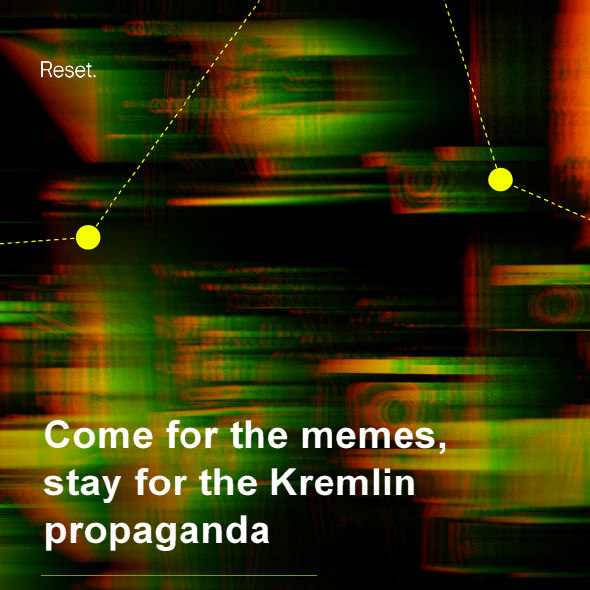Come for the memes, stay for the Kremlin propaganda

Introduction
In the quest for global influence amidst its illegal war on Ukraine, the Kremlin’s interest in Africa is higher than ever before. Russia’s recent attempts at manipulating African information environments and pushing out disinformation to mass audiences are well documented. Russian propaganda has filled out a news vacuum left by the exit of many Western media outlets from the Sahel due to repression and violence against journalists. In 2022 alone, The African Centre for Strategic Studies reported sixteen Russia-linked disinformation campaigns across the continent.
Nearly all of the Kremlin’s information operations in African countries leverage social media, and Facebook in particular, as an unregulated vector for swiftly and covertly influencing millions. This report presents evidence for the Kremlin’s large-scale and continuous manipulation of Meta’s products in Francophone Africa.
- Our research found the existence of a coordinated network of at least 57 Facebook pages activated in early March 2023 that disseminate and amplify Kremlin propaganda targeting French-speaking audiences in Africa with a combined follower base of 5.1 million.
- The network parrots the Kremlin’s narratives against Ukraine, NATO, and the West. A key narrative targeting local audiences is that Russia is Africa’s true friend and ally, ready to help African countries stand up to French hegemony.
- The network often posts footage taken directly from Russian government and state media sources as well as various Russian Telegram channels.
- Between the 1st of March and 25th of June 2023, the network received 9.2 million interactions (likes, shares, comments) and published 11.7K posts.
- The pages in the network share hallmark characteristics of coordinated inauthentic behaviour (CIB) that are in direct violation of Meta’s policies: all pages use fictitious identity (pose as media outlets), have similar branding and posting patterns and accumulate engagement and follower base inauthentically. They all leverage a common “bait-and-switch” content strategy for attracting users with entertaining content first before starting to amplify pro-Russian disinformation at scale.
- New pages are continuously being added to the network. Only four pages have been deleted since we started monitoring the network’s activities in April 2023. At the time of publishing this report, the network at large remains undetected by Meta.
Though our investigation focuses on one coordinated disinformation network, our findings suggest the existence of a much larger manipulation marketplace on Facebook that can be activated by Kremlin assets at any time to rapidly disseminate political propaganda in Africa.
In African countries, these threats appear to be largely unmitigated to date. There are numerous policy instruments designed to tackle harmful disinformation and information manipulation in other regions, including the EU’s Code of Practice on Disinformation (to which Meta is a signatory) and the Digital Services Act. These new product safety rules should establish standards that benefit not only Europeans but also African markets and consumers.